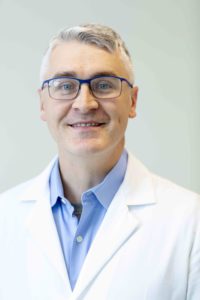
University of Washington researchers have developed a fast, inexpensive method to make electrodes for supercapacitors, with applications in electric cars, wireless telecommunications and high-powered lasers.
University of Washington scientists have built a new nanometer-sized laser "” using the thinnest semiconductor available today "” that is energy efficient, easy to build and compatible with existing electronics. The ultra-thin semiconductor is about 100,000 times thinner than a human hair.
About the Environmental Innovation Challenge
If you’ve got a passion for cleantech and the desire to make an impact, the UW Environmental Innovation Challenge is for you. In the EIC, interdisciplinary student teams define an environmental problem, design a solution, produce a prototype, and create a business summary that demonstrates market opportunity and the potential for impact. We define cleantech innovation as any product, process or service that reduces waste, minimizes energy consumption, and contributes to a healthier planet. Re-use/recycling, water usage, energy generation, green consumer products, nanotechnology – all are ripe for innovation. Read More
Please join the Clean Energy Institute as Professor Mildred Dresselhaus presents its inaugural interdisciplinary seminar:
Perspectives on Our Energy Future
Providing clean energy to the inhabitants of our planet is a major challenge to future generations. This talk will give my perspectives on this challenge in general terms and on how nanoscience and new nano-materials may contribute to addressing this challenge.
Thursday, November 7
4:00 PM 5:00 PM HUB Lyceum
Reception and drinks to follow
Presented by
Mildred Dresselhaus, PhD
Professor of Physics and Electrical Engineering, Emerita
Massachusetts Institute of Technology
Professor Mildred Dresselhaus is currently one of twenty-three Institute Professors at the Massachusetts Institute of Technology, with appointments in the Department of Electrical Engineering and Computer Science and the Department of Physics. Read More
The UW Clean Energy Institute (CEI) announces two new graduate fellowship opportunities. The mission of the CEI Fellowship program is to catalyze clean energy research that is related to solar energy conversion (Sun-to-Electricity and Sun-to-Chemicals), electrical energy storage (Electricity-to-Chemicals/Materials/Other), and electrical systems and the grid (Electricity Distribution).
Some specific goals of the program are to:
1. Seed new exploratory research activity that addresses the core CEI mission areas
2. Attract the best new graduate students to work at UW on projects in core CEI mission areas
3. Read More
From UW Today: September 11, 2013
UW engineers get grant to make cookstoves 10 times cleaner for developing world
Nearly 500 million households roughly 3 billion people, or 42 percent of the world's population rely on burning materials such as wood, animal dung or coal in stoves for cooking and heating their homes. Often these stoves are crudely designed, and poor ventilation and damp wood can create a smoky, hazardous indoor environment day after day.
A recent study published in The Lancet estimates that 3.5 million people die each year as a result of indoor air pollution from open fires or rudimentary stoves in their homes. Read More
Regulating electron "˜spin' may be key to making organic solar cells competitive
Organic solar cells that convert light to electricity using carbon-based molecules have shown promise as a versatile energy source but have not been able to match the efficiency of their silicon-based counterparts.
Now, researchers have discovered a synthetic, high-performance polymer that behaves differently from other tested materials and could make inexpensive, highly efficient organic solar panels a reality.

.
The polymer, created at the University of Washington and tested at the University of Cambridge in England, appears to improve efficiency by wringing electrical current from pathways that, in other materials, cause a loss of electrical charge. Read More
Congratulations to MolES faculty Lilo Pozzo’s senior design team “Polydrop,” grand prize winners at the 2013 UW Environmental Innovation Challenge, an annual event sponsored by the UW’s Buerk Center for Entrepreneurship. Their prize-winning prototype is an additive that transforms regular coatings into conductive coatings to enable the use of carbon fiber composites in the transportation industry, a solution that prevents the accumulation of static charges that can interfere with sensitive electronics. Learn more "º Read More
Guest post by MolES faculty member and Chemical Engineering chair Daniel Schwartz on the Foster Unplugged blog
When I think Cleantech, my mind goes straight to the triangular logo on my waste container at work: "reduce, reuse, recycle." These three words are central to most enduring cleantech innovations, though sometimes in paradoxical ways. "Reduce" is the most prone to paradox, since reducing one thing generally happens by increasing another. Let's explore this "reduce" paradox via two well-known examples in that space.
Read More
A paper in Science describes an organic crystal that shows promise as a cheap, flexible, nontoxic material for the working parts of memory chips, sensors and energy-harvesting devices.